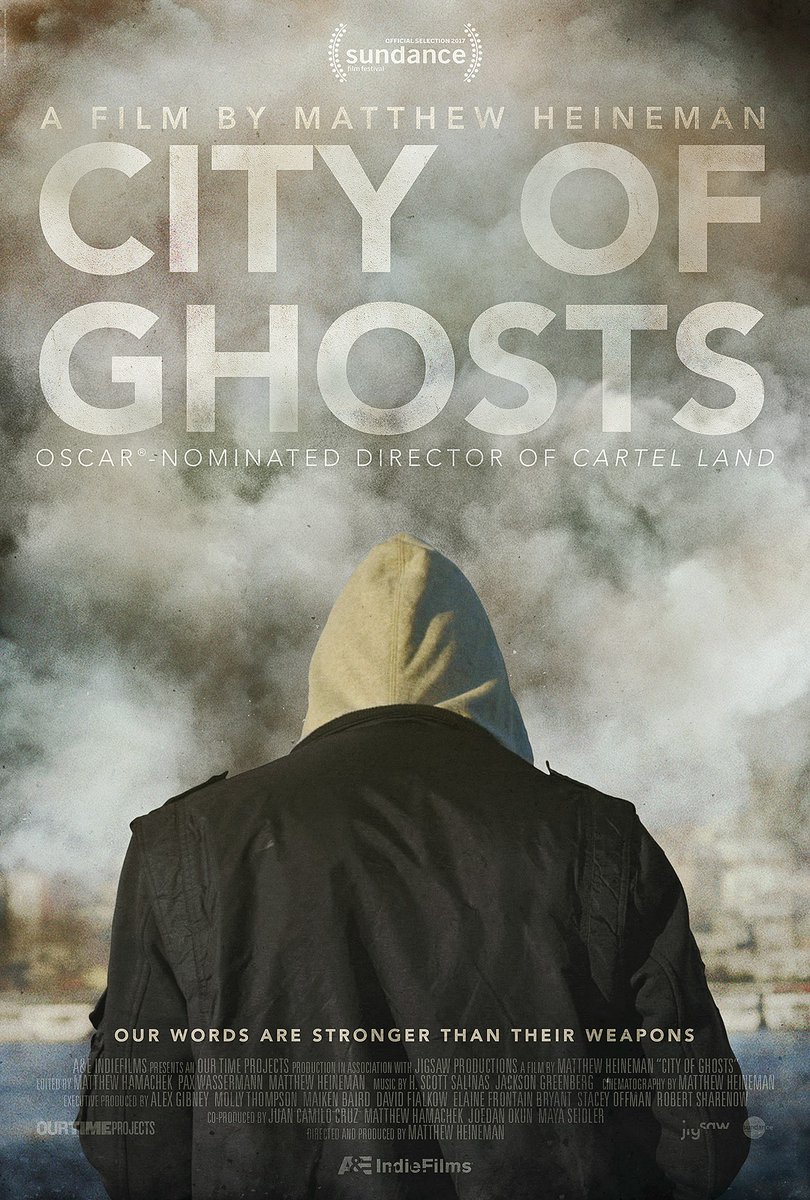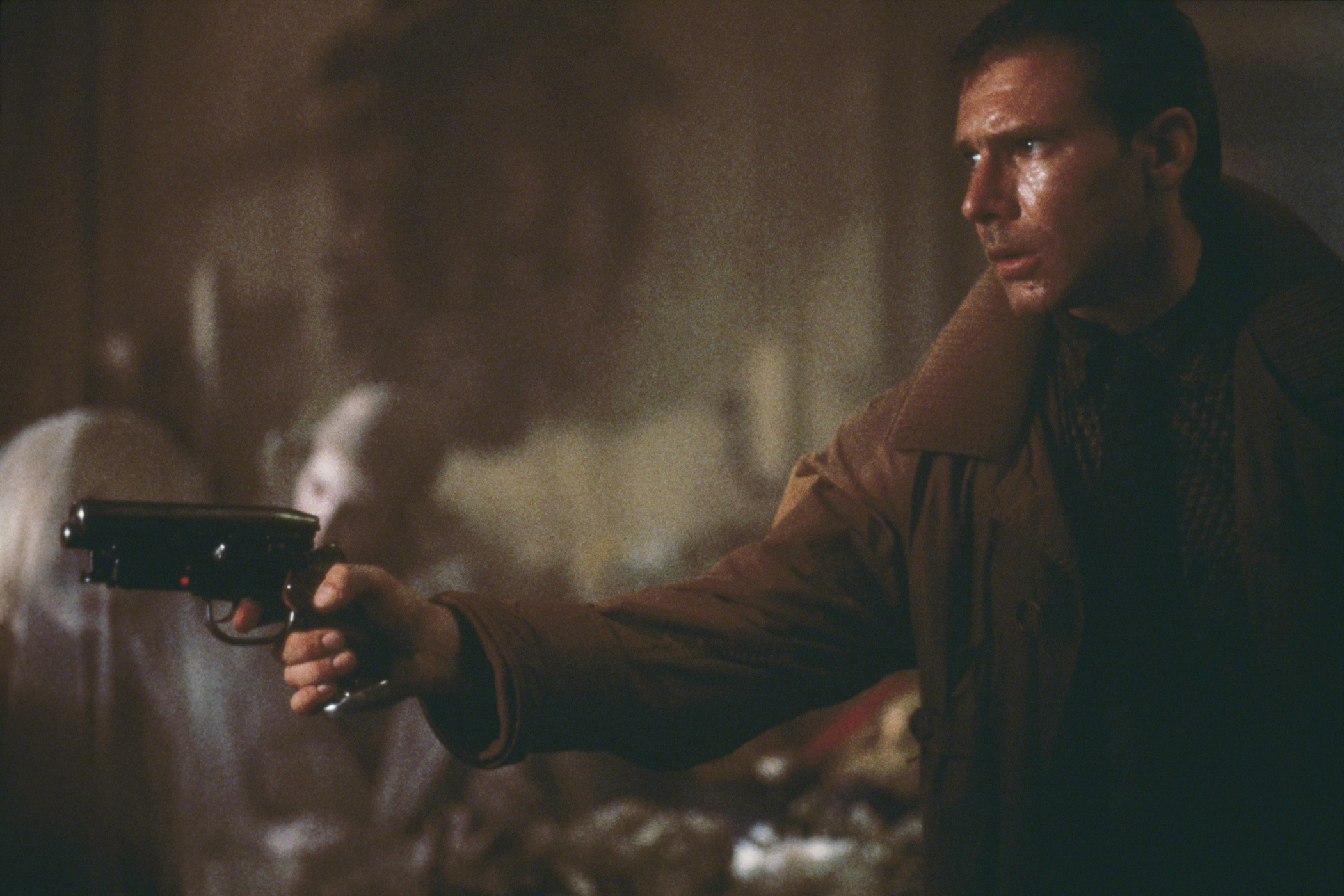Post by SnoBorderZero on Jul 25, 2017 0:08:23 GMT -5

Matthew Heineman made quite the name for himself with 2015's Cartel Land. It was a fascinating view into one of the most dangerous parts of the world inhabited by some of the most dangerous people in the world, and while it didn't end up winning the Best Documentary Oscar it was easily one of the standouts of the year. Heineman's follow up film is City of Ghosts, a documentary that follows a courageous group of journalists who have fled from the ISIS controlled city of Raqqa, Syria and are posting damning videos of the atrocities being committed in Syria that the world would have no idea were happening. The small group flee from one European city to another while transmitting videos taken from their informants within the city of Raqqa, knowing that they and their loved ones lives are in great peril. Heineman this time around isn't capturing footage from within the dangerous area and instead follows the journalists hiding out in Europe while relying on the shocking footage brought to them to relay the terrible going-ons within ISIS-controlled Syria. City of Ghosts not only proves itself to be an incredibly timely and important work, but also provides a fascinating look at the ultimate weapon being used by both sides: media.
Syria dominated the international headlines in 2016, mostly for the disgraceful acts of its president, Bashar Al-Assad, and for the intense battles taking place in its now desolate cities. While the civil war was mostly taking place in Aleppo, another war between ISIS and the Syrian people was raging in Raqqa. ISIS moved in and quickly took over with brutality, fear mongering, and suppression of the civilians and promptly banned nearly all incoming and outgoing anything. Raqqa became highly dangerous not only because it became an ISIS stronghold, but also because there was little opportunity for anyone outside of the city to have sufficient knowledge of what transpired within its borders. Our protagonists are the lucky few who did escape to Europe, and we find these journalists hanging out in a Turkish flat uploading videos to Facebook and corresponding with their informants still stationed within Raqqa. It's a dangerous game that all of them are playing, and there's a lingering dread throughout the doc of being exposed. While Heineman is not able to infiltrate Raqqa like he did with the Cartel in Cartel Land, he's able to capture the journalists' heartbreak and fear as they torture themselves watching videos of their loved ones being executed by ISIS or seeing their mentor executed out in public. While most of the film is very grim and foreboding in tone, Heineman does manage to capture glimpses of hope and happiness among the crew and show them to be regular people that are fighting for the city and people that they love. This isn't finger wagging or hamfisted approaches to journalism, but rather a very personal glimpse into what would turn civilians into champions of change.
The film's main idea stems around both sides use of media in order to further their causes. While the group, Raqqa is Being Slaughtered Silently, posts their videos and images of the city in order to raise awareness and empathy for the inhabitants' plight, ISIS has continued to use media as both recruiting tools and ways to connect with one another in order to coordinate attacks and promote their agenda. RIBSS is using journalism to humanize the Syrian people to the Western world, while ISIS relies on showy, effects driven promotional videos to glamorize their ideology. The two sides are not only divided in their causes, but even fundamentally so in how they use their media. It's a battle of truth vs. deception, and at times it's not clear which side is winning that fight. One of the most striking images was when ISIS ordered all satellite dishes in the city to be torn down in an attempt to eliminate any communication leaving the city. It's hard not to be moved by images of ISIS recruiting children, or whole sections of Raqqa being reduced to ruins. While the film doesn't focus on the refugees that fled Syria, the impact of these current events again can be felt throughout the film. One such occurrence happens while they're in Berlin, and a nationalist parade that Jeff Sessions would be proud of takes place while the journalists attempt to raise awareness of the happenings in Raqqa. The nationalists jeer and taunt them, yelling at them to leave Germany. Leave there and return to Raqqa, return to what? In the current age of Trump America, it's another timely example of the importance in their work in raising awareness regarding the atrocities that the Syrian people are facing. The journalists have dreams, families, and would love to return to the Raqqa they grew up in. It's a passionate plea for help through cameras and social media posts, and their message has never been more important than it is today.
8/10


